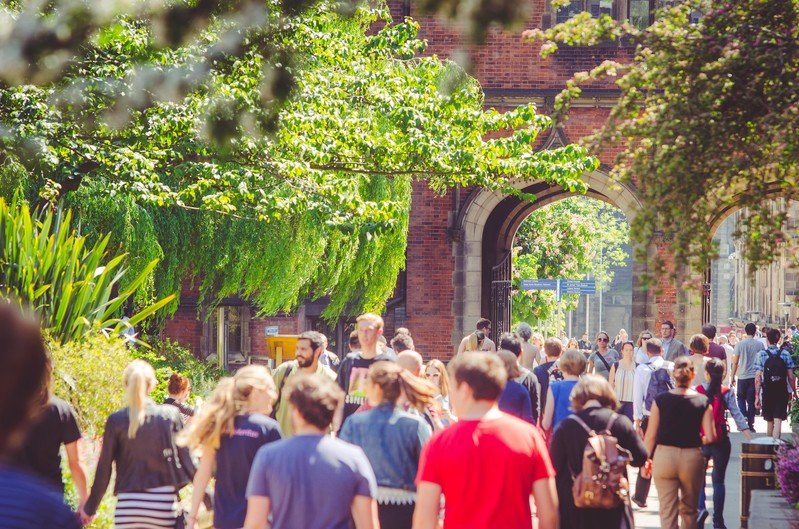Staff Profiles
Dr Joe Redmayne
Leverhulme Early Career Fellow
- Email: joe.redmayne@ncl.ac.uk
- Address: School of History, Classics and Archaeology
Armstrong Building
Newcastle University
Newcastle, NE1 7RU
Dr. Joe Redmayne is a Early Career Researcher. His research deals with British social and political history of the twentieth century, focusing on transnationalism, labour movements, and the contentious politics of class. He is currently a Leverhulme Early Career Fellow in the School of History, Classics and Archaeology working on his new research project: “Out of the Blue: The Maritime Strike Wave to the British General Strike, 1925-26”.
Joe has particular research interests across three connected themes:
- Transformative events and subsequent processes of unity, division, radicalisation and demoralisation;
- Transnational cycles of protest, contentious politics, and intellectual itineraries in historical actors and social movements;
- Contradictory global legacies across themes of political economy, empire, radicalism, urban/rural identity, and industrial heritage in former industrial spaces.
He has previously taught and conducted research at Newcastle University as a Graduate Teaching Assistant, Associate Lecturer and Associate Researcher.
Academic Background
- BA in History (University of Sunderland);
- MA in History (University of Newcastle);
- PhD in History (University of Newcastle, supervised by Professor Matt Perry, Dr Willow Berridge, and Dr Sarah Hellawell)
The Leverhulme Early Career Fellow research project builds on his past work of labour movements during the early twentieth century, but takes a more spatial and maritime focus. The project reimagines the General Strike of 1926 through a global maritime approach, challenging land-locked assumptions of industrial relations, thereby rendering it relevant to today’s globalised world economy. Conventional interpretations overlook 1926’s maritime harbinger, the International Maritime Strike of 1925. Adding this crucial antecedent, the project investigates these successive and connected waves of maritime contestation through the epicentre of North-East England, probing spatial agency and geographies of resistance. Neglected port and seafaring labour possessed a multi-ethnic, gendered, casualised complexity and unruliness that can fundamentally alter our comprehension of these strike waves as stoppages of the global circulation of capital.
Prior to his fellowship, in 2024, he completed his doctoral investigation at Newcastle University which situated the North East of England during the year 1919 transnationally, exploring the global implications of Empire on British society through regional working-class consciousness. The investigation adopted a ‘multi-occupational approach’ to investigate whether themes (such as class, gender, race/ethnicity, disability politics, and empire) could be delineated along occupational lines. He disseminated part of this research through a peer-reviewed article in a special issue on ‘Port Identities’ in the French-language social history journal Le Mouvement Social (10.3917/lms1.287.0069).
Between 2023-2024, Joe was employed as an Oral History Unit Associate Researcher, where he collaborated with Lloyds Register Foundation and Historic England’s ‘Women in Shipbuilding’ project that launched three exhibitions. Part of this research has been disseminated in the Historic England Research Magazine and a short documentary with Amber Films. Shortly after this contract, he worked at the North East Museums (formerly the Tyne & Wear Archives & Museums) as an Archives Services Assistant and Archive Assistant Keeper.
Joe is an active member of the Labour & Society Research Group (LSRG) and Oral History Unit (OHU) research strands in the School of History, Classics and Archaeology.
Joe is not currently teaching this academic year.
-
Article
- Redmayne J. Idéologies, mobilisations ouvrières et usages de l’espace dans la ville portuaire de South Shields (Angleterre, 1914-1922). Le Mouvement Social 2025, 287(2), 69-94.
-
Report
- Redmayne J. Report of Newcastle University’s Oral History Unit to Review ‘Women in Shipbuilding’ during the First World War. Newcastle University, 2024.
-
Reviews
- Redmayne J. Ravi Ahuja, Shipping Lords and Coolie Stokers: Class, Race, and Maritime Capitalism in the Early Twentieth Century. The Journal of Imperial and Commonwealth History 2025, Epub ahead of print.
- Redmayne J. Jim Phillips, Scottish Coal Miners in the Twentieth Century. Labour History Review 2020, 85(3), 314-316.
